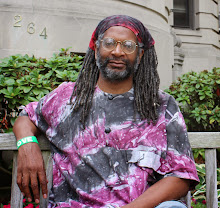It was
interesting…and troubling… to listen to author Matthew Bunson ("St.
Kateri: Lily of the Mohawks") talking to Doug Keck, Executive Director of
Eternal Word Television Network and host of EWTN roamin catholic television's "Bookmark"
(July 13, 2015) on the history of catholicism on Turtle Island. I observed them
privileging the work of catholic missionaries above the colonial exploitation
of the Spanish, British and French as if they were the singular light of
redemption of that time in that place.
Talking romantically about the "black robes" as the
"highly educated" Jesuit priests were called, they bantered about the
Jesuits having set up a settlement so that they could "practice their
faith" and "protect themselves", (gently) castigating the
Iroquois for their "xenophobia" and for their concern of the
encroachment of European settlers in their Ancestral lands.
The casual nature of
their conversation more than belied the brutality and genocide against First
Nations, Original and Native American peoples on Turtle Island, recently
brought to light and news headlines by an apology stated by the pope. It submerged the voice, struggle and
resistance of indigenous peoples against European colonialism, made more
negatively profound by the work of predatory missionaries projecting foreign
and unnecessary religious and cultural concepts into indigenous nations, tribes
and bands, enacting, in essence and action, cultural genocide, none of which
was brought into the conversation with any substance by Bunson or Keck. Actually, their discussion was more a shaming
of those who might dare to suggest that somehow the catholic church was
involved in any negative way in the destruction of indigenous cultural,
political and/or spiritual sovereignty, seemingly negating the sense of openness,
at least in word only, that the pope created by his apology and his statements
of the importance of indigenous peoples and their stewardship of the earth in
the recent environmental encyclical, "Laudato Si".
This interview
harked back to narrow and colonial ways of referring to indigenous peoples and
resistance to the European holocaust on Turtle Island and beyond. Its casual air was, again, troubling, as they
reaffirmed a cultural arrogance, a matter-of-factness of religious and colonial
privilege that stated strongly that being "saved" in the particular
European derivation of christianity was and is required for their conception of
redemption to become real and that that was still their conception about how
the world should be engaged. This kind
of conversation is no different than the nature of the original vatican papal
bulls of the 1400's that gave catholic and christian conquerors the blessing of
the church to subjugate peoples and lands in the interest of saving souls and
emboldening the colonial force of christendom across the planet. This, again, seems contradictory to the
recent statements by the roamin catholic pope himself, suggesting that there
may yet be a currently silent rift or at least an important learning curve yet ahead in the
catholic church's 1.2 billion members if the words of the pope are going to be
taken seriously in the light…or shadow…of the recent encyclical and apology for
the sins of the church against indigenous peoples.



No comments:
Post a Comment